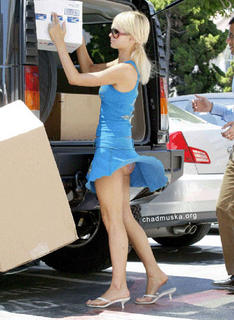Picking between paying cash and a mortgage
 Alert news, Latest Gossip......
Alert news, Latest Gossip......Paris Hilton to marry Paris Latsis in Greece
Hotel heiress Paris Hilton, who is dating Greek shipping heir Paris Latsias, has revealed that she will walk down the aisle in Greece.
Hilton made her way to the country last month to find the perfect location for their wedding, and after a long search and weeks of socialising, she returned to the US satisfied with her final decision.
"(Paris and I) are really happy. We had an amazing summer in Europe together. Everything's amazing. We were looking all over Greece and we found some really beautiful places. Right now I'm finishing up work and then we'll do the wedding," the Sun quoted Hilton as saying to Access Hollywood.
You Want to Be a Landlord?
Tip No. 1: Make sure you know what you're getting into Determined to profit from the housing boom, many Americans are acquiring rental properties. But some of them may be underestimating the risks and complications that come with being a landlord. "We get a lot of inquiries from naive people," says Mike Phillips, who owns Century 21 All-Pro, a real-estate brokerage firm in Kansas City, Mo. He gets calls from people in California, Florida and New York who figure property in Kansas City must be a steal. Mr. Phillips tells inexperienced investors they need to examine such factors as the health of the local economy and the supply and demand for rental housing. In much of the country, the fundamentals look bleak for landlords. Low interest rates have allowed many former renters to buy their own homes in recent years, removing some of the most reliable tenants from the mix. According to the Census Bureau, the vacancy rate for rental housing in this year's first quarter was 10.1%; that rate has been gradually rising since the late 1970s, when it was around 5%. Investors also need to ask whether they can cope with the hassles of dealing with tenants. "What if the renter's kid shoves G.I. Joe in the toilet?" Mr. Phillips asks. "You have to have a game plan, because they're going to call you." Yet Americans' faith in real estate is remarkably strong. During this year's first four months, investors accounted for nearly 10% of new mortgage loans used to buy homes in the U.S., up from 6% in 2001, according to LoanPerformance, a unit of First American Corp. For those willing to put up with the ordeals of owning rental property, here are some tips from seasoned landlords. FIGURE OUT YOUR TOTAL COSTS. Unless you take into account all of your costs, you won't know whether you're making money. "Most people underestimate their expenses dramatically," says Jonas Lee, a managing partner at Redbrick Partners LP, a New York firm that invests in single-family rental housing in Baltimore, Philadelphia and other Northeastern cities. The costs include obvious things like insurance, maintenance and property taxes. But they also include items that some landlords overlook, such as periods of vacancy, bad debts, the occasional need to replace expensive items like roofs or furnaces, and time spent managing the properties, Mr. Lee says.
Picking between paying cash and a mortgage
We are selling our home in California and moving to Arizona. Should we pay cash for the new home, or get a loan for around $150,000 and invest the remainder? I would invest in secure products. Not the stock market. We will probably make around $50,000 this year. Is the mortgage deduction worth it for us? We really would have no other big deductions
About 70 percent of U.S. households own their own homes, but less than 30 percent of taxpayers claim the mortgage interest deduction on their taxes. For the 2005 tax year, the standard deduction for a couple filing jointly is $10,000. A full year of interest expense on a $150,000 mortgage at 6 percent is roughly $9,000. Points, property taxes and other potential deductions should have you flirting with exceeding the standard deduction in 2006, but I don't know enough about the mortgage interest expense on your current home to say whether you would benefit from itemizing in the 2005 tax year.
So it's the incremental amount over the standard deduction that gives you additional tax savings. If you don't have any other big deductions, then it's going to be a pretty small incremental tax savings. Talk to your tax adviser if you can't determine whether there would be an advantage to itemizing.
Your financial goals will also influence whether a mortgage is right for you. If you are approaching retirement and don't want to have a mortgage in retirement, then paying cash for the new house can make sense.
If you're worried about preserving your financial flexibility, then taking out a home equity line of credit, or HELOC, allows you to tap your new home's equity for financial emergencies.
Taking out a mortgage so you can invest cash elsewhere only makes sense if you can expect to earn more after tax on your investments than you pay after tax on your mortgage. If you aren't using the mortgage interest deduction on your taxes then the interest rate on your mortgage is your bogey in determining whether you should invest in something other than your personal residence. Assuming roughly a 6 percent interest rate on a fixed rate mortgage, there's not many safe investments expected to outperform that rate in the current economic environment.

0 Comments:
Post a Comment
<< Home